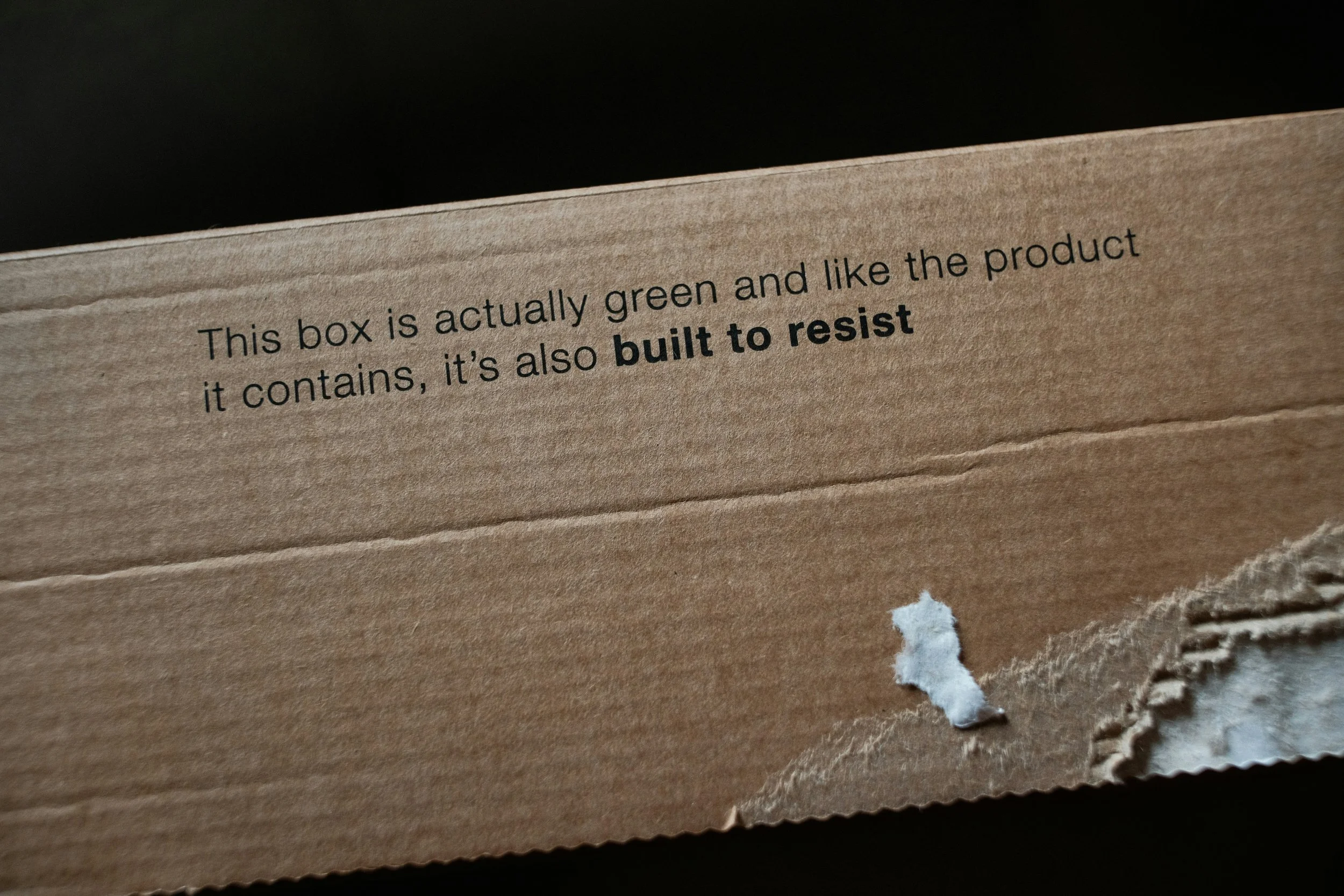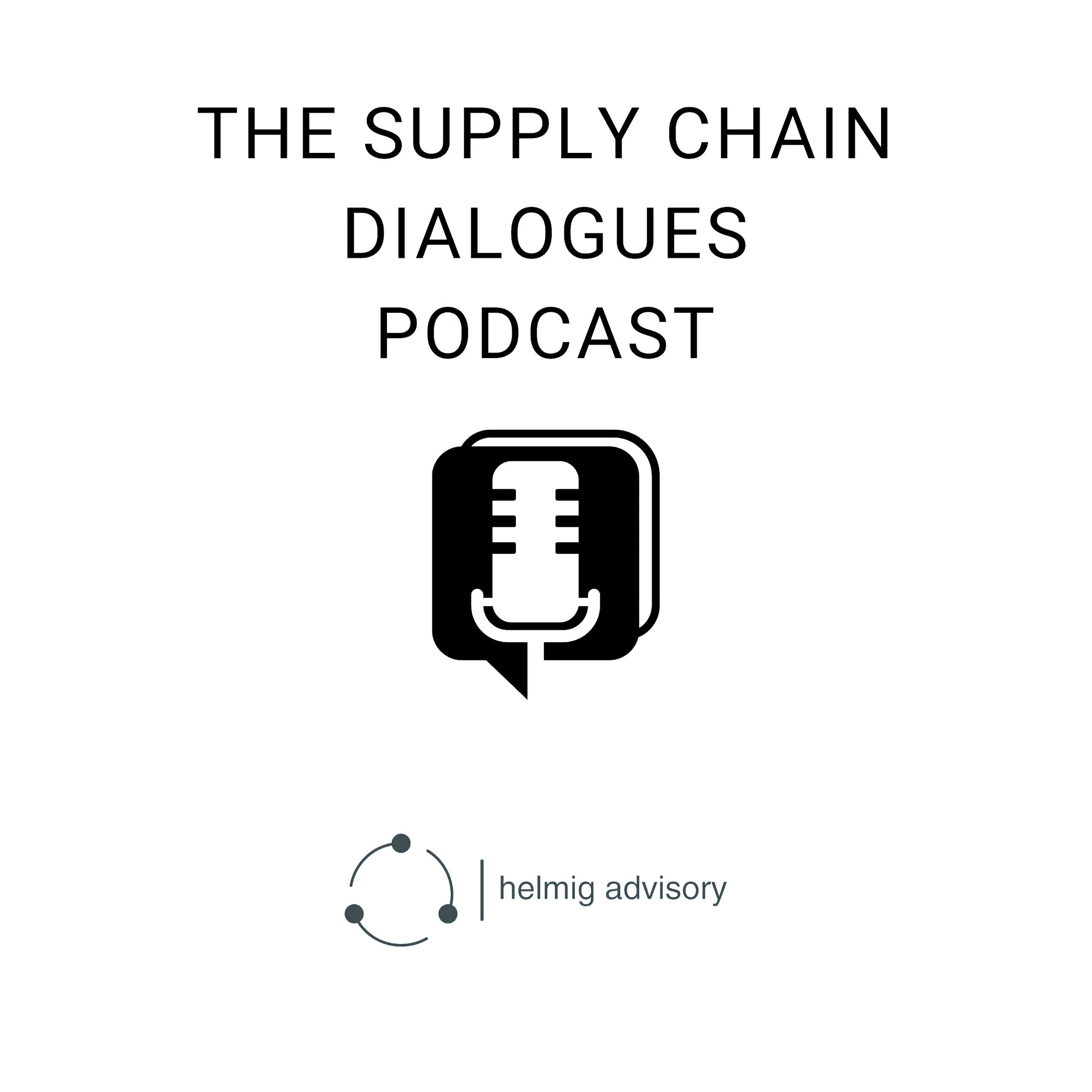
S04E08 - Transform or Perish: The Leader of 2040
In the final episode of Season 4, Dr Daniel Helmig paints a compelling vision of what supply chain leadership will look like in 2035 when net-zero targets are meant to be achieved. Moving beyond the problems identified in previous episodes, this forward-looking conversation explores the capabilities, structures, and mindsets that will separate tomorrow's winners from today's compliance-focused organisations. From transformation pods replacing functional silos to shadow carbon pricing becoming standard practice, this episode provides a roadmap for leaders ready to build the future rather than perfect the past. Essential listening for anyone wanting to understand – and prepare for – the coming decade of supply chain transformation. Season 4 concludes with gratitude and hopes for a brilliant 2026.

S04E07 - What Actually Works: Recommendations for Achieving Net-Zero
After six episodes dismantling conventional wisdom about supply chain sustainability, Episode 7 delivers actionable solutions. Based on rigorous research with German discrete manufacturing companies, this episode translates counterintuitive findings into specific recommendations for academics, policymakers, and business leaders. Discover why transformation trumps measurement, why current regulatory approaches fail, and what actually works to achieve net-zero Scope 3 emissions. Essential listening for anyone frustrated that sustainability investments aren't delivering climate impact.

S04E06 - The Organisation Conundrum - When Bigger Means Slower
In this episode of Supply Chain Dialogues, Daniel Helmig and AI co-host AImee explore the organisation paradox: why larger companies with more resources struggle more with Scope 3 emissions reduction than smaller firms. Drawing from doctoral research on 248 German manufacturing companies, the discussion reveals that organisational complexity creates systematic barriers through siloed decision-making, diffused accountability, risk aversion at scale, and incentive misalignment. The episode contrasts this with the surprising finding that geographic diversity positively influences implementation effectiveness, suggesting that international complexity can be leveraged as a strategic advantage. Practical solutions include creating dedicated transformation teams with genuine authority, implementing decentralised decision-making with centralised coordination, modifying incentive systems to prioritise carbon metrics, and establishing cross-functional governance structures. The episode emphasises that structural change, not just commitment, is essential for achieving meaningful Scope 3 emissions reduction.

S04E05: The Tech Trap - Why (just) Digital Transformation Doesn't Deliver Decarbonisation
In this episode of Supply Chain Dialogue, Daniel Helmig and AI co-host Amy discuss the pitfalls of relying solely on sophisticated technology for achieving net-zero scope three emissions. They explore the concept of 'digital displacement,' where companies substitute technological solutions for necessary operational changes, leading to minimal actual reductions in emissions. Real-life examples demonstrate that a low-tech approach often surpasses high-tech solutions in terms of meaningful impact. The discussion also critiques the European Union's Digital Product Passport legislation, arguing it creates more compliance theatre rather than driving real emission reductions. Listeners are encouraged to focus on simple, targeted tools and human-centred approaches for effective supply chain transformation.

S04E4: The Policy Paradox - Why Regulations Reduce Action
In this episode of 'Supply Chain Dialogues,' Daniel Helmig and AI co-host Amy delve into the ineffectiveness of current EU regulatory policies in achieving net-zero emissions by 2040. They reveal that positive perceptions of regulatory frameworks actually correlate with less action on emission reductions, particularly due to the focus on easier-to-control Scope 1 and 2 emissions while neglecting more impactful Scope 3. The episode critiques the 'sustainability bureaucracy' that diverts resources from practical actions to compliance activities and calls for a fundamental revision of regulatory approaches, emphasizing real transformation over compliance theatre.

S04E03 - The Economics of Inaction - Why Cost-Benefit Analysis Kills Climate Action
What if the most rational business practice is actually killing climate action?
In this episode, Daniel and AI-mee reveal a shocking discovery from Daniel's doctoral research: companies that conduct thorough cost-benefit analyses are significantly LESS likely to implement climate solutions. We're not talking about climate deniers or cash-strapped startups – these are sophisticated, well-resourced companies doing exactly what business schools teach.
The twist? The bigger and more financially sophisticated the company, the worse this problem becomes. It turns out that economic rationality might be the biggest barrier to saving the planet.
You'll discover:
Why marathon sustainability investments keep losing to sprint financial metrics
The hidden bias in evaluation frameworks that nobody talks about
How the world's most sophisticated companies are trapped by their own financial expertise
If you've ever wondered why smart companies with good intentions struggle with climate action, this episode will change how you think about business decision-making forever.
Next Episode: "The Policy Paradox: Why Regulations Reduce Action"

S04E02 - The Standards Paradox - Why More Rules Mean Less Action (Copy)
In this episode of The Supply Chain Dialogues, Daniel Helmig explores why achieving net-zero Scope 3 emissions by 2040 is so challenging. Featuring an interview with, let's call her, Dr. Elizabeth Schmitt, a CPO of a company participating in the research Daniel did. Based on her request, the interview is fully anonymous, since she feels repercussions from her former employer could happen when talking openly.

S04E01 - Setting the Stage - Why Manufacturing Holds the Climate Key
In the first episode of Season Four of 'Supply Chain Dialogues,' host Daniel Helmig discusses the surprising findings from the massive doctoral research on supply chain climate action in the discrete manufacturing industry. Contrary to his initial expectations, Daniel discovered significant flaws in the conventional wisdom surrounding emissions measurement, cost-benefit analysis, and regulatory impact. The episode sets the stage for a season-long exploration of these discoveries, emphasising the critical role of German manufacturing companies and highlighting the importance of focusing on Scope 3 emissions for effective climate action. With insights from 248 surveyed companies, the research aims to challenge and redefine global strategies for mitigating climate change.


